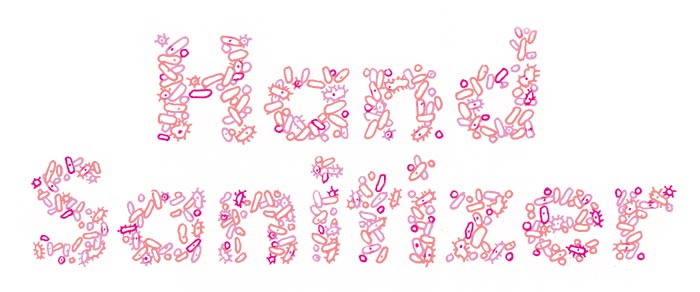I don’t know how you celebrated this year’s national hand hygiene day, but the festivities were a bit muted at my place. I gave up on the themed crossword after “STOP! Clean Your Hands Day is ____ 5th” (correct answer: May), and I never even got around to entering the draw for a prize pack from Gojo, event sponsors and makers of the Purell hand sanitizer that now dangles from every purse strap and guards every doorway. Over the past decade, as SARS, swine flu, and other threats have come but never quite gone, hand hygiene has transformed from private virtue to public duty, while sales of alcohol-based hand rub have gone stratospheric—but I’ve somehow failed to get religion.
I’m not some kind of hygiene denier, following the early Christian teaching that “a clean body and a clean dress mean an unclean soul.” The quote is from Saint Paula, who also made a point of licking the ground where Jesus’s body was said to have lain. No, I’m firmly team Ignaz Semmelweis, the Vienna physician who in 1847 showed that fatal post-childbirth fevers could be virtually eliminated if medical students just washed their hands between autopsies and baby deliveries—a revolutionary idea that, once doctors finally bought in, cut post-surgical infection rates from as high as 30 percent to 1.3 percent.
So, like most people, I’ve been alarmed by warnings about an “apocalyptic scenario” of antibiotic-resistant infections. It turns out that the very drugs that allowed us to become casual about hand hygiene are now failing us, and suddenly we’re struggling to relearn Semmelweis’s lesson. “You would think, commonsensically, that people would just wash their hands and we wouldn’t be having this conversation,” says Giulio DiDiodato, an infectious disease specialist at Royal Victoria hospital in Barrie, Ontario. But remembering to wash your hands hundreds of times a day, as health care workers are called to do, doesn’t come naturally. Hence the need for STOP! Clean Your Hands Day. What you won’t read in the papers is that the badgering is paying off: audits of Ontario hospitals report that handwashing compliance has climbed from 53.3 percent in 2008 to a less stomach-churning 85.6 percent this year.
But do the rest of us really need to scour our hands so obsessively? Outside of microbial hothouses like hospitals and kindergartens, it is less clear that going beyond the basics—washing before you eat and after you use the bathroom—has much benefit. A study funded by Dial Soap, published last year, failed to find any reduction in common cold infections after volunteers disinfected their hands every three hours for nine weeks. “Do you need to be super-vigilant about hand hygiene when you go to a grocery store? ” DiDiodato asks. “Many of the diseases we transmit can live on inanimate objects for a long time, but the odds of your acquiring an illness from touching a shopping cart are infinitesimal.”
Then there’s the fact that for every human cell in the body, there are another ten microbial cells. Since the ’80s, evidence has accumulated that these bugs are just as likely helpful as harmful—and sometimes both. For example, H. pylori causes stomach ulcers, but its absence seems to leave kids more susceptible to allergies. If you lack crucial gut bacteria, you may even find yourself on the receiving end of a fecal transplant—a backdoor injection of the very microbes you so frantically scrubbed from your hands.
The point is not that we should be dirtier; it’s that “dirty” and “clean” simplify a complicated reality. Certain germs in certain contexts cause serious problems, and we need to target those without getting bogged down in a holy war on germs. Should I fall prey to whatever putative pandemic arises next (the early guess from the Handwashing Leadership Forum was that 2013 would go down as the Year of the Norovirus), I’ll make sure to sneeze into my sleeve, but I’m still happy to shake your hand—and I’ll pass on that crossword.





